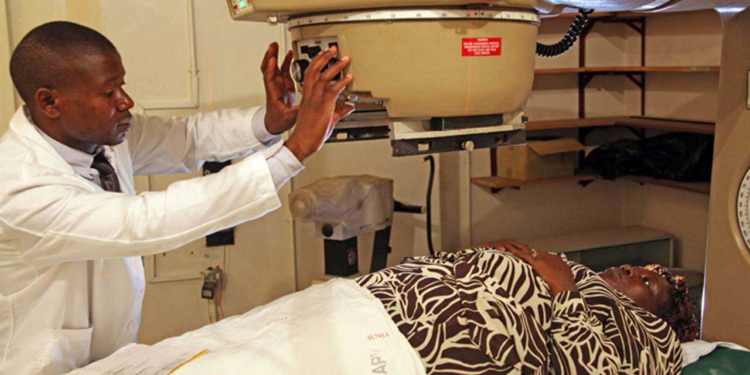As cancer cases continue to rise across Africa, AstraZeneca is intensifying its efforts to improve early detection and access to advanced treatment options.
This move comes amid warning from the World Health Organization (WHO), which projects that cancer-related deaths in sub-Saharan Africa will nearly double—from 520,348 in 2020 to almost 1 million annually by 2030.
Recognizing that delayed diagnoses and limited access to advanced care significantly worsen outcomes, AstraZeneca is launching and expanding several programs designed to strengthen diagnostic capabilities and increase treatment availability across the continent. The company’s initiatives focus on accelerating early detection and fostering close collaboration with healthcare systems to bridge existing gaps in cancer care.
AstraZeneca’s Connect to Care program, developed in partnership with Axios International and key medical associations, is dedicated to accelerating lung cancer diagnoses through multidisciplinary collaboration.
In Nigeria and Kenya, the company is enhancing molecular testing infrastructure by partnering with institutions such as Moi Teaching and Referral Hospital (MTRH) and Nigeria’s Federal Ministry of Health to introduce advanced diagnostics like EGFR testing for lung cancer.
Meanwhile, in South Africa, AstraZeneca has joined forces with Medsol AI Solutions to launch Project Flamingo—an AI-driven breast cancer screening initiative targeting underserved communities. The AI-powered platform has demonstrated an impressive 97.6% accuracy in predicting malignancies, enabling earlier interventions and helping to ease the burden on public healthcare systems.
African cluster country President at AstraZeneca, Deepak Arora, said, “Our mission at AstraZeneca is to bridge the gap in cancer care. By improving access to diagnostics and treatments, we aim to transform the landscape of cancer outcomes on the continent. Early detection plays a critical role in improving survival rates, and we remain committed to supporting initiatives that make a meaningful difference for patients.”
In addition to its diagnostic programs, AstraZeneca is investing in strengthening healthcare infrastructure and expanding access to treatment. The company’s Cancer Care Africa programme is equipping healthcare professionals with essential tools, including biomarker testing technology for lung cancer and ultrasound biopsy machines for prostate cancer, while also offering specialized training to build a more capable oncology workforce.
AstraZeneca’s expanded efforts align with the spirit of World Cancer Day 2025, emphasizing a united, patient-centered approach to tackling the global cancer burden.
As cancer mortality in Africa is set to nearly double within the next five years, the company’s initiatives represent a crucial step forward in addressing critical healthcare gaps and providing hope to millions of patients across the continent.



